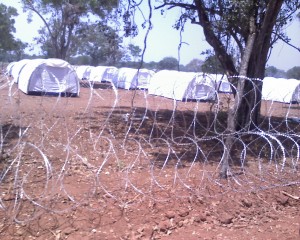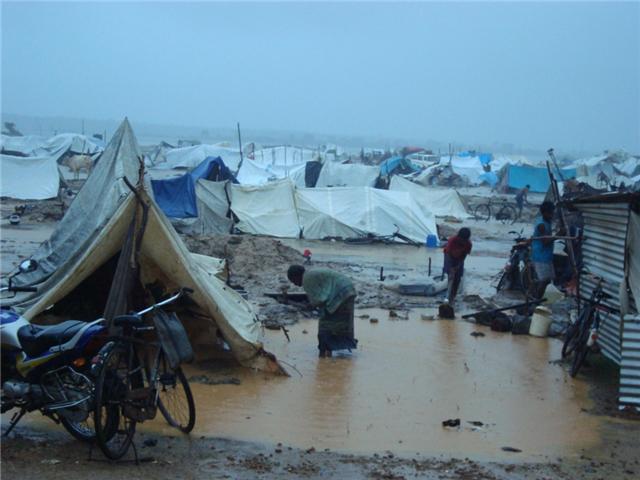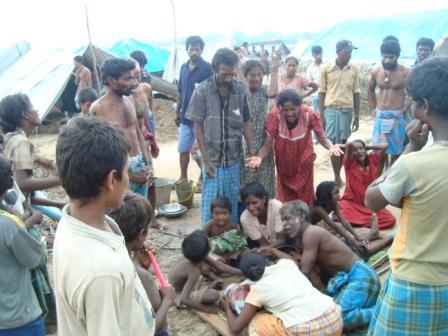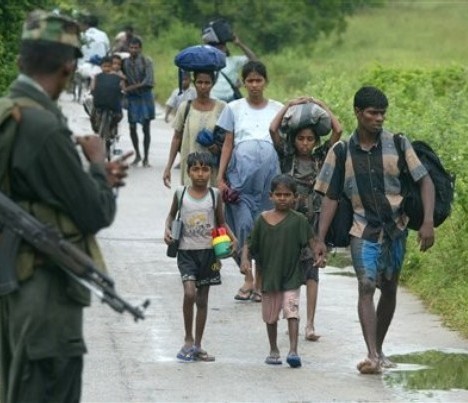I think I sort-of knew many of the facts that Elijah Wald recounts “in this piece in the Financial Times”:http://www.ft.com/cms/s/2/eeca345e-8de1-11de-93df-00144feabdc0.html . Still, knowing and putting-together are two different things. You couldn’t listen to 78s as “background music” because even with an auto-changer, you’d have to get up every 15 minutes – hence the importance of radio if you wanted a soundtrack to other activities. Why did jazz singers such as Billie Holiday record such a wide repertoire of “standards”? They were packaging the hit songs of their day for a particular audience (with other singers styling for other market segments). Wald’s account also makes sense of other matters that seem incomprehensible to modern music fans. Wald doesn’t discuss this, but we are often surprised that great singers of the past died in poverty and obscurity and are buried in unmarked graves (Bessie Smith, for example). But Wald’s emphasis on the contemporary importance of the song rather than the singer helps to explain how this could have happened. We might prize the iconic performances of the time, but back then there were lots of jobbing singers churning out multiple versions. Interesting enough to make me order a copy of Wald’s new book, _How the Beatles Destroyed Rock ’n’ Roll_.
From the monthly archives:
August 2009
Well with Australia 133 for 8 and 199 behind at tea on the second day, I’m a bit late starting this. If I’d posted last night it would have been to berate a mediocre England – what a difference a day makes. Is Broad the new Flintoff? Can Australia yet pull it back? Comment away.
“Felix Salmon”:http://blogs.reuters.com/felix-salmon/2009/08/19/the-economics-of-tattoos/ yesterday on the economics of tattoos:
Drewbie left me a comment this morning talking about people interviewing for jobs and not getting them, just because they had visible tattoos. I can well believe it. But at the same time, precisely because of this discrimination, I tend to both expect and receive much better service from people with visible tattoos. … Businesses with tattooed employees are signalling to me that they have better service, and as a result I’m more likely to try them out.
By coincidence, I’m reading Diego Gambetta’s new book, _Codes of the Underworld: How Criminals Communicate_ (Powells, Amazon, B&N), which has a lot to say about signalling via tattoos and other forms of visible self-mutilation. Gambetta argues that criminals often cover themselves with tattoos precisely because they ruin the criminals’ prospects to go straight; they allow the criminals to signal “that defection would be not so much unprofitable as impossible.”
Self-binding can also take the form of self-branding as found, for instance, in South African prisons:
bq. Erefaan’s face is covered in tattoos. “Spit on my grave” is tattooed across his forehead; “I hate you, Mum” etched on his left cheek. The tattoos are an expression of loyalty. The men cut the emblems of their allegiance into their skin. The Number [the name of the hierarchical system in Pollsmoor prison] demands not only that you pledge your oath verbally, but that you are marked, indelibly, for life. Facial tattoos are the ultimate abandonment of all hope for a life outside.
Neal Stephenson, in _Snow Crash_, proposed an America in which the collapse of government led communities to brand criminals faces’ with brief descriptions of their criminal tendencies, so that others in different communities would know to give them wide berth. Gambetta’s logic suggests that branding, whether voluntary or involuntary, could sometimes be in the criminal’s self interest – it serves as a costly signal of type. More generally, I’m enjoying the book a lot – the best bit so far is Gambetta’s lovely theory of incompetence as a signalling mechanism in Italian academia. Recommended.
Another longish extract from my book project. Corrections and suggestions of all kinds are welcome. I’m also thinking it might be good to have a website where it’s possible to look at, and comment on, all the draft chapters, but I suspect people prefer the atmosphere of a comments thread. Any thoughts on this?
John Holmes the UN Coordinator for Humanitarian Affairs has a nice tribute to the UN workers who died in the Baghdad Bombing of 19 August 2003, six years ago today. he notes that ‘On this day in 2003, the UN offices in Baghdad were blown up by a truck bomb, killing 22 humanitarian workers and dedicated professionals, among them Sergio Vieira de Mello, a lifelong humanitarian who had saved lives and reduced suffering in some of this planet’s toughest places.
In remembrance of this tragedy, today is the first World Humanitarian Day, an opportunity to reflect on the remarkable achievement that when crisis strikes today, it is taken for granted that aid workers will be on the scene within hours.‘
I had turned down a job with the UN mission in Iraq to go to Afghanistan a few months beforehand, and several of my former colleagues from Kosovo were among the dead and injured that day. Since then I have lost count of the number of friends and colleagues who have been killed, maimed, kidnapped or emotionally traumatised in the course of their work.
Holmes notes that: ‘The number of conflicts around the world has shrunk over the past 20 years but the humanitarian fallout of conflict remains appallingly high. The kind of internal conflict we see so often is particularly ruinous for civilian lives and livelihoods.
Developments in Sri Lanka and Pakistan this year have strained our humanitarian aid system to the limit. An estimated 2 million people have been displaced in Pakistan during the past few months – the fastest displacement of people in recent memory. In Sri Lanka, the guns have finally fallen silent but about 300,000 people are still in camps, waiting anxiously to return home and depending on assistance to survive.
Long-running conflicts in Darfur, the Democratic Republic of Congo, the occupied Palestinian territory and Somalia continue to affect millions. The humanitarian operation in Darfur – the largest in the world and now in its fifth year – struggles to provide assistance to 4.75 million civilians.‘
Given the news of another massive attack in Baghdad today and the continuing rising death toll in Afghanistan, it might seem wrong to single out aid workers for special mention, since we do after all volunteer to go to such places. However, I think that there is a debate to be had about the changing nature of aid work, how it is become politicised and what could be done to make it more effective according to our core humanitarian principles of independence, impartiality and neutrality.
Two book reviews I’ve done on netroots related stuff that may be of interest to CT readers.
First, a “review”:http://www.prospect.org/cs/articles?article=do_the_netroots_matter for _The American Prospect_ of Eric Boehlert’s and Matthew Kerbel’s books on the netroots.
But the netroots’ discomfiture isn’t mere pique. Nor is it simple anger that Obama has broken his promises to roll back the security state that developed over the previous eight years, although this is surely important. The real worry for the netroots is that Obama is undermining their particular blend of online politics. He has taken the parts of netroots politics that he likes (online organizing and fundraising), while dumping the parts that he doesn’t (a strongly confrontational politics and emphasis on bottom-up decision making). There isn’t much room for the netroots and vigorous online partisanship in Obama’s plans for the future of the Democratic Party.
I think I would modify this a bit now, given the interesting stuff happening around pressure to keep the public option in healthcare reform, but would still stick by my fundamental claim about the basic tensions between the administration and netroots and their allies.
Second, a piece for “Times Higher Education”:http://www.timeshighereducation.co.uk/story.asp?sectioncode=26&storycode=407101&c=1 on Matt Hindman’s book on digital democracy.
bq. As his book title suggests, Hindman puts paid to some of the most pernicious myths of democracy and the internet. Lazy libertarian arguments that the internet was going to create radically empowered individuals, an “army of Davids” that would topple government and so-called “mainstream media” with a few well-aimed missiles are simply unsustainable. So, too, are some of the hazier left-wing claims about how the internet would foster “extreme democracy”. The internet is creating new forms of social organisation, but they have their own kinds of hierarchy. And in many cases the old hierarchies are co-opting the new ones. In the US, traditional media and think-tanks are hiring prominent bloggers. Few major bloggers are still independent, and those who are, are mostly trying to create their own miniature media empires. Still, stupid claims for the democratic benefits of technological pixie dust may be too tempting a target. Hindman’s focus on the bad arguments of internet evangelists leads him to make some over-reaching claims of his own.
Comments or criticisms welcome on either or both …
Amnesty has just published a good report and action. It calls ‘for the immediate release of 285,000 innocent civilians – including an estimated 50,000 children – being held in cramped and squalid camps in the north of Sri Lanka.’Â
Here are a couple of photos taken from about six months ago of the camps as they were being built:
And here are two from about the same day of the ‘no-fire zone’Â a few miles away:
And here is a picture which I think shows the refugees leaving the war zone and being escorted to the camps.
You can see in the first photo the emblems of a humanitarian agency. The second photo shows the barbed wire surrounding each camp. These were, and are, effectively concentration camps (in the original meaning of the word), and so the dilemma was whether humanitarian agencies should have helped to build and administer them?Â
The next two photos show the conditions that the people who are now in the camps were previously suffering. Thousands died either from direct shelling, or starvation and disease, in the space of a few months. Should the aid agencies have done more to publicise what was happening or spoken out louder for a ceasefire – even if it meant getting thrown out of the country or arrested?Â
Finally, should the agencies have allowed themselves to be used in part of a counter-insurgency campaign by the Government of Sri Lanka in which over a quarter of a million people have been forcibly displaced from their homes – which is a prime facie violation of the laws of armed conflict?
The other relevant bits of law here are the provisions in the Geneva Conventions which permit humanitarian agencies to ‘offer their services’ to state parties but also require them to remain strictly neutral during conflicts (Despite what is sometimes asserted there is no legal ‘right to humanitarian assistance’ and nor are governments ‘obliged to allow’ access to civilians by humanitarian agencies during non-international conflicts) and the humanitarian imperative, which says that the alleviation of human suffering comes before other considerations.
Governments may suspend certain rights during public emergencies – such as liberty and freedom of movement – but are constrained both in what they can do to captured combatants, and other prisoners, and how they treat civilians under their control. Governments may on no account torture people or carry out summary executions, starvation is prohibited as a weapon of war and military forces must attempt to distinguish between military and civilian targets, are prohibited from attacking purely civilian targets and must subject all attacks on military targets which may result in civilian casualties to a principle of proportionality. People charged with criminal offenses have a right to a fair trial. The International Committee of the Red Cross has a recognized role in ensuring that these provisions are upheld in practice and so the denial of access to screening facilities or detention centres are issues of legitimate concern from a humanitarian or human rights perspective.
So what would you have done if you had been working for an aid agency in northern Sri Lanka over the past six months?
You are all wondering what Kieran is so damn sorry about (in his characteristically sociological and defensive way.)
Well. Here is a picture of our orbiting server, taken around 1910 A.D. (common era, if you prefer, you atheist.) An estimable flying fortress – sort of a cross between a siege engine and a bat. That’s to keep out spam. (Since siege towers were once called belfries, I deduce that this is a belfry bat.) No doubt it performed excellently in wind-tunnel tests. But, to make a long story short … over the weekend it crashed. And comments were, as it were, ‘crushed’ under the ‘weight’ of all that ‘wood’ and ‘canvas’. (source: Flickr.)
But if that’s what our server looks like, you ask: Whatever does the internet as a whole resemble, eh, riddle me? It is, now that you ask, a sort of ‘City of the Future’, circa 1925:
Now get back to work! All of you!
I think everything should be back to normal now. We ran out of various stuff. I blame society.
The current working title for the book is Zombie Economics: Six Dead Ideas that Threaten the World Economy (suggestions for a better subtitle are welcome) and that requires a new intro.
Also, I’ve come to the view that “market liberalism”, as opposed to “economic liberalism”, is a better name for the viewpoint, based on the efficient financial markets hypothesis and other ideas criticised here, that has dominated policy thinking in recent decades.
Any thoughts on these points, or the revised intro, would be most welcome.
[click to continue…]
A year ago I was going through a Les Paul phase and posted a nice round-up of YouTube items. It’s fantastic stuff. I suggest you take 10 minutes to remember the father of rock and roll – well, he sort of was. There’s a whole documentary you can watch. I love the idea of idea of this guy with the future of music planted in his head, touring around as Rhubard Red. I love all that corny old stuff with Mary Ford. Corny and elegant and kinda nerd-brainy, and beloved by geniuses for what he let them do. Les Paul. Not a bad life.
Oxfam has managed to get a law on domestic violence enacted in Malawi, according to Duncan Green, its Head of Research.
I like Duncan. He has written some excellent stuff on Latin America and his wife is a former colleague of mine. I agree with him that violence against women is a bad thing and I will take his word for it that it is a serious problem in Malawi. However, I cannot help wondering about his statement that this type of ‘advocacy at national level . . is becoming an increasingly important part of Oxfam’s work.’ What exactly gives Oxfam a mandate to campaign to change the laws of the countries that it is working in and what expertise does it have in the area of criminal justice reform?
Oxfam’s focus in Malawi is on sustainable livelihoods, HIV and AIDS, health, and humanitarian aid and there is no mention of the law on the country page of its website. I did find a report entitled Popularising the Africa Women’s Protocol which details some awareness-raising activities and briefly mentions the new law, but there is no analysis of what its impact has been. Has it led to more prosecutions and, if so, what has happened at the trials? Have more people been imprisoned for committing these crimes and what impact has this had in discouraging further offences? What have been the financial costs of implementing the new law and how effective has it been in tackling the problems that it is supposed to address? Malawi is a poor country and aid organisations need to think through the costs of foisting potentially expensive new legislation on it.
I have also just read an Amnesty International report about violence against women in Brazil. I used to work for Amnesty and I hold the organization in great respect. I live in Brazil and am currently working on an Access to Justice project here. My wife is a Brazilian judge and hears dozens of cases related to domestic violence every week. I am a Brazilian tax payer and we are expecting a new baby shortly, who will be born a Brazilian citizen. In other words, I feel that I have a stake in my adopted country’s future.
We have recently enacted a new law on violence against women, which the Amnesty report praises. Amongst other things, this imposes tougher prison sentences on offenders, provides for preventative pre-trial detention and enables prosecutions, without the consent of the victim, even where the violence has been of a very minor nature.
While there is broad support for the new law, these provisions have caused controversy. Conditions in Brazil’s notoriously overcrowded prisons are appalling and most of them are effectively run by crime gangs. The majority of defendants that come before my wife are poor and unemployed; many are alcoholics or drug addicts, or have mental health problems. Lack of appropriate social services means she can rarely refer them anywhere and the new law is likely to lead to a dramatic increase in the number sent to prison. There is at least a debate to be had about whether this is the best way of tackling the problem.
Yet the Amnesty report does not mention any of these issues – which seems strange for a body set up to help get people out of prison rather than put them in. Instead it talks a lot about the social context of the violence, which affects black and poor Brazilians disproportionately. It also has a chapter about the poor quality of Brazil’s public health care and education systems.
While these points are undoubtedly true, I found myself wondering what Amnesty intended to do about them. Oxfam has obvious expertise here, since it implements education and health projects in the poorest countries of the world. Amnesty has traditionally been strong on criminal justice reform. Yet, rather than stick to what they are good at, both seem to want to converge on one another’s territory – the fuzzily-defined concept of a ‘rights-based approach to development.’
I don’t have a problem with the theoretical underpinnings of this, but what does it actually means in practice? We can all agree that people living in poverty have their human rights violated on a daily basis. The difficulty is not so much identifying the violator, but coming up with an effective remedy.
Some suggest new international treaties, others that putting social and economic rights into constitutions means that they can be tested in law. But there is virtually no empirical evidence that either approach has helped to reduce poverty in developing countries. In fact it is more likely to skew a country’s social spending because it is only the rich who are able to afford to pursue cases through rights-based litigation.
To take just one example, Brazil spends 12 per cent of its Gross Domestic Product on pensions compared to about 3 per cent on health and less than 5 per cent on education. Around 40 per cent of this sum is spent on people aged 40 – 60 and roughly 40 per cent goes to only three million former public employees. The richest fifth of Brazil’s population receive 61 per cent of pension spending; a Scandinavian level of welfare for the already extremely wealthy. Meanwhile people working in the informal economy – roughly 40 per cent of the workforce – get no benefits whatsoever.
On current deomgraphic and economic trends pension spending could bankrupt Brazil in a few decades. President Lula’s attempt to reform the system in his first term of office was met with a vigorous campaign of resistance from the Brazilian judiciary – who are amongst its chief beneficiaries. Brazil entrenched a plethora of rights and privileges in its 1988 constitution, which led to a big jump in state spending on social programmes, but had virtually no impact on reducing poverty. It is no coincidence that it is both one of the most unequal and most litigious countries in the world. These constitutional provisions also overburdened the Brazilian judiciary, which has led to lengthy delays in the conduct of trials. Amnesty reports have often rightly slammed the length of time that people spend in pre-trial detention, prison conditions and fair trial concerns, yet it seems oblivious to the link between the two issues.
Governments throughout the world have to make choices between taxation and public spending, which will always involve prioritisation and trade-offs. Enacting new legislation costs money and money spent on a prison can obviously not be spent on a school or hospital. The danger of the rights-based discourse is that removes subjects of legitimate debate from the political institutions and entrusts them to the judiciary. When applied to the international development industry it dis-empowers national parliaments and weakens democratic accountability. I would be interested in hearing other people’s views on this topic.
If you’re going to talk about humanitarian interventionism (and with Conor as our guestblogger this week, we are), then sooner or later, you are going to come up against the Big One; the argument that the fact of the Rwandan genocide forever legitimises the general principle of a “responsibility to protect”. A version of this can be seen in James Traub’s review of “The Thin Blue Line (I should note here that IIRC Conor does say in his book that there should have been more of an intervention in Rwanda):
In 2005, the world’s heads of state, gathered at the U.N. General Assembly, adopted the doctrine of “the responsibility to protect,” which stipulates that states have an obligation to protect their citizens from crimes against humanity and other mass atrocities, and that, should they be unable or unwilling to do so, other states incur that obligation. That responsibility, in the most extreme cases, includes military action. R2P, as the norm has come to be known, formalizes the principle, which lies at the heart of humanitarian intervention, that the right of people to be free from the worst forms of mistreatment supersedes the right of states to be free from external intervention. It is scarcely possible in the aftermath of Rwanda to argue otherwise, and so no one does directly.
The implication here is that there was no intervention in Rwanda, and that this was the reason for the genocide (Traub’s sentence “It is scarcely possible …” summarises the rhetorical strategy with rather more grace and subtlety than is typical – it’s not particularly uncommon for supporters of intervention to simply accuse opponents of having the blood of Rwanda on their hands). The thing is, there was a military intervention in Rwanda.
[click to continue…]
a) 16: b) 35,000: c) 400,000: d) 7.5 million: e) 0
The first figure is the number of fatalities in Darfur for the month of June of this year – the most recent date for which they are available – and is taken from Alex de Waal’s widely-respected Making Sense of Darfur blog.   This notes that 12 of the deaths were ‘probably criminal in nature’ while the remaining four were related to the ongoing political crisis. This is the lowest monthly total since the start of the crisis and brings the total number of violent deaths in the Darfur region to perhaps 600 so far this year.  For the first nine months of last year, it is estimated that there were around 1,211 deaths of whom around 496 were civilians.
This is way down on the death toll at the height of the conflict in 2003/2004 when the International Criminal Court estimates that around 35,000 people were killed during the government’s counter-insurgency campaign, which is where the second figure comes from.
The third figure is the number of ‘innocent men, women and children [who] have been killed’ in Darfur according to a series of high-profile advertisements and press statements run by the Save Darfur Coalition in 2005 and 2006. This exaggerates the number of violent deaths in Darfur by more than ten-fold. The adverts were criticised by the Advertising Standards Association and the coalition now use the figure 300,000 instead. This is a UN guesstimate at the total number of people who have died both from the direct and indirect effects of the conflict. It is based on the figure used by the main aid agencies during fund-raising appeals in 2005 – when they said that 200,000 lives had been lost – and a comment by a UN official that this figure could now be half as high again. From my extremely limited experience of counting displaced people and/or dead bodies during refugee crises, I would say that the 200,000 figure was about right when the agencies were using it. This was half the number claimed by the coalition at the time and the wording of their adverts – which implied the deaths were a result of physical acts of violence was clearly misleading.
[click to continue…]
Discussion is perking along in my McArdle on rationing thread. For the record: she articulates her general case against national health care here, then follows up here. I think it all adds up to a nice illustration of the point I was making in this post (I wish I had made it more clearly, to judge from comments.) McArdle’s opposition to national healthcare is based entirely on slippery slope arguments, arguments from unintended consequences, and suspicions that those who are proposing national health care really want different things than they say they do. Now, this is reasonable. But only up to a point. Because at some point we need something more, but McArdle is quite strident in her insistence that what she has said is enough.
What does she leave out? Arguing only in the ways she does leaves it unclear what she would think about national health care reform if it worked. And the reason it is important to know that is that we really have to know what McArdle’s values really are – her ideals. Let me show how it goes. [click to continue…]




